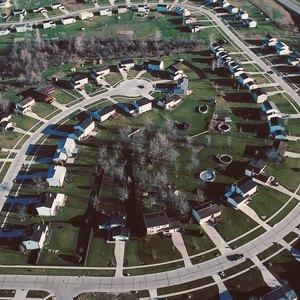
Florida homeowners’ associations can charge both interest and late fees on assessments. This must be authorized, however, by the association documents. Florida law sets limits on the rates and amounts.
Association Documents and Florida Law
Check your association declaration and bylaws to determine whether interest and late fees are permitted and at what rates. Florida usury law limits interest charges to 18 percent per year even if your association documents state a higher rate. If the documents provide for interest but do not provide a figure, the 18 percent rate applies. Late fees, which may be charged on top of interest, are limited by law to the greater of $25 or 5 percent of the assessment installment.
Applying Late Lees
If you are late paying a $100 monthly installment, you could be charged a $25 late fee. If you are late paying a $1,000 annual assessment, your late fee would be no more than $50.
The late fee is charged once for each late assessment. If a monthly assessment remains unpaid for three months, you cannot be charged three late fees. If additional monthly assessments are not paid during the three-month period, you may be charged late fees on those assessments.
Timing
Some associations charge interest and late fees as soon as the assessment due date has passed, which is permissible. Others send a reminder notice if payment hasn’t been received and provide an interval after the reminder notice before charging interest and fees.
If you are late paying an assessment, pay it as soon as possible, even if the late charge has already been billed. Associations may also charge attorney fees and other collection costs to the homeowner. These costs are sometimes higher than the interest and late fees, and some of them apply as soon as the file is sent to an attorney.
Priority of Payments
If you make a partial payment of amounts that you owe to the association, the payment must be applied first to interest, then to late fees, then to collection costs, and the remainder to the late assessment. This is true even if you provide contrary instructions with your payment.
Liens and Foreclosure
The association has the right to file a lien against your property for late assessments and related fees and costs. After that, it can foreclose on your property. However, the association also has the option of simply suing you for the amount owed instead of foreclosing. You may face a lawsuit over the unpaid assessments even if your property is in foreclosure with a lender.
The association must give you 45-day written notice before filing a lien, sending the notice by both registered or certified mail and first class mail. The notice is sent to your address of record on the association rolls. Another 45-day notice must be given before the association begins foreclosure. During the foreclosure process, the homeowner has additional legal rights.
References
Writer Bio
Eric Petty owns a small firm that represents buyers and sellers of businesses. He began writing professionally in 2011. He is a Florida-licensed Certified Public Accountant and Real Estate Broker, and a Certified Merger and Acquisition Adviser. Petty earned his Master of Business Administration in finance from the Wharton School at University of Pennsylvania.

